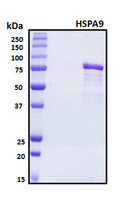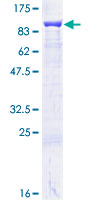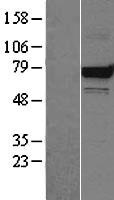order histories, retained contact details for faster checkout, review submissions, and special promotions.
Forgot password?
order histories, retained contact details for faster checkout, review submissions, and special promotions.
Locations
Orders Processing,
Shipping & Receiving,
Warehouse
2 Shaker Rd Suites
B001/B101
Shirley, MA 01464
Production Lab
Floor 6, Suite 620
20700 44th Avenue W
Lynnwood, WA 98036
Telephone Numbers
Tel: +1 (206) 374-1102
Fax: +1 (206) 577-4565
Contact Us
Additional Contact Details
order histories, retained contact details for faster checkout, review submissions, and special promotions.
Forgot password?
order histories, retained contact details for faster checkout, review submissions, and special promotions.
HSPA9 / Mortalin / GRP75
heat shock 70kDa protein 9 (mortalin)
HSPA9 / Mortalin / GRP75 is a member of the heat shock protein 70 gene family. The encoded protein is primarily localized to the mitochondria but is also found in the endoplasmic reticulum, plasma membrane and cytoplasmic vesicles. This protein is a heat-shock cognate protein. This protein plays a role in cell proliferation, stress response and maintenance of the mitochondria. A pseudogene of this gene is found on chromosome 2.
| Gene Name: | heat shock 70kDa protein 9 (mortalin) |
| Synonyms: | HSPA9, Heat shock 70 kDa protein 9, GRP-75, Heat shock 70kD protein 9B, GRP75, Mortalin-2, Mortalin, perinuclear, Mot-2, MOT2, Peptide-binding protein 74, MOT, MTHSP75, p66-mortalin, PBP74, CSA, HSPA9B, Mortalin |
| Target Sequences: | NM_004134 NP_004125.3 P38646 |
Publications (1)






If you do not find the reagent or information you require, please contact Customer.Support@LSBio.com to inquire about additional products in development.









